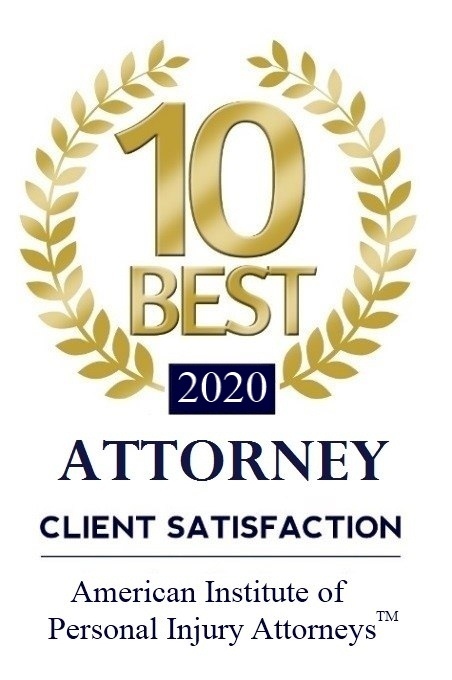Rideshare services have become an essential way of transportation for people across California. They provide convenience, safety, and flexibility that traditional taxi services do not always offer. While using rideshare apps like Uber or Lyft, passengers generally expect a safe ride to their destination. However, accidents can still happen, and when they do, the consequences can be devastating. In some cases, these accidents result in fatal injuries, leaving loved ones heartbroken and dealing with sudden loss. A rideshare accident that leads to a fatality can bring about many questions, particularly regarding the rights of the family members of the deceased. One of the main questions that arises is whether it is possible to file a wrongful death claim after a fatal rideshare accident in California. Understanding this process can help families seek justice and hold responsible parties accountable for their actions. At, Timothy J. Ryan & Associates, we are here to guide you through the legal process and help you navigate the complexities of your case.



Understanding Wrongful Death Claims in California
A wrongful death claim is a legal action taken by the surviving family members of someone who has passed away due to the actions, whether intentional or accidental, of another person or entity. In California, wrongful death claims are intended to provide compensation to the family members for their loss and the financial burden that often follows a loved one’s passing. Such claims may also include compensation for emotional distress, the loss of companionship, and in some cases, loss of future income or benefits that the deceased would have provided for their family.
For a wrongful death claim to be valid, certain elements must be present. The death must have been caused by someone’s negligence, recklessness, or intentional harm. If someone’s actions, either through direct involvement or a lack of caution, led to the fatal accident, the family of the deceased has the right to seek justice. This justice often comes in the form of financial compensation, although no amount of money can truly replace the loss of a loved one. California law supports these claims under the understanding that the family is entitled to seek restitution when the death could have been prevented.
Rideshare Accidents and Liability
Rideshare companies like Uber and Lyft are unique in that they operate through drivers who use their own vehicles while the rideshare company provides the platform and insurance. While these companies do carry insurance that covers passengers during rides, liability can become complicated in the event of a fatal accident. In California, both Uber and Lyft are required to maintain insurance policies that cover passengers in case of an accident during a ride. These policies can include up to $1 million in liability coverage, which applies when the driver is actively transporting passengers.
Determining who is liable in a fatal rideshare accident depends on several factors. The driver, the rideshare company, and sometimes even other third parties, such as another driver or a pedestrian involved in the accident, may share liability. If the rideshare driver acted negligently, such as speeding or driving under the influence, they may be held responsible for the fatality. In these situations, Uber or Lyft’s insurance may provide compensation, but it can become a complex legal matter. On the other hand, if another party caused the accident, then the liability may fall on that individual or their insurance provider. Establishing liability is essential for a wrongful death claim to be successful, as it determines who will be held accountable and who will pay damages to the surviving family members.
Who Can File a Wrongful Death Claim in California?
In California, wrongful death claims can be filed by specific family members of the deceased. This includes the spouse or domestic partner of the deceased, their children, and in some cases, other relatives who were financially dependent on the deceased, such as parents or stepchildren. If the deceased has no immediate family members, then other relatives or legal dependents may have the right to file a wrongful death claim. This allows family members who relied on the deceased for support to seek compensation for their loss and continue to meet their financial needs.
Only one wrongful death claim can be filed on behalf of the deceased individual. This means that eligible family members must either work together to file a single claim or appoint a representative to do so. This single claim includes all damages that eligible family members may be entitled to receive. If family members cannot agree on how to proceed, California courts can help make the determination based on state laws and the family’s unique situation.
Factors That Can Impact a Wrongful Death Claim in a Rideshare Accident
Several factors can impact the success of a wrongful death claim following a fatal rideshare accident in California. One of the main factors is the evidence that shows the fault or negligence of the driver or any other involved party. Evidence such as witness statements, video footage, police reports, and accident reconstruction analysis can all be crucial in establishing who is responsible for the accident. In rideshare cases, the rideshare company’s role also comes into question. Uber and Lyft drivers are classified as independent contractors, which can make liability more complex because rideshare companies may argue they are not fully responsible for their drivers’ actions. However, California’s recent laws regarding independent contractors can sometimes affect this classification and may allow a claim against the rideshare company itself.
Another key factor is the insurance coverage available to cover damages in the wrongful death claim. In cases where the rideshare company’s insurance policy applies, the maximum coverage limit might cover some of the damages. However, in cases where there is additional or other insurance coverage, the available funds may increase. Having the right evidence and understanding the different insurance policies in place can play a significant role in the outcome of a wrongful death claim.
Damages Available in a California Wrongful Death Claim
When a wrongful death claim is filed, family members can seek a range of damages to help them cope with the financial and emotional burden of losing a loved one. In California, these damages may include funeral and burial expenses, loss of financial support, loss of love and companionship, and the value of household services that the deceased would have provided. The court evaluates these damages based on several factors, including the deceased person’s age, health, and earning potential before their death. Each case is unique, and the damages awarded can vary widely depending on the details of the accident and the family’s specific needs.
In addition to economic damages, family members may also pursue non-economic damages for the emotional suffering and loss of companionship they experience. These damages recognize the deep emotional toll that a fatal accident can have on a family and aim to provide some form of relief, even though no amount of compensation can truly make up for the loss.
Choosing a Personal Injury Attorney
Personal Injury Case Timeline
Related Videos
The Importance of Legal Assistance in a Wrongful Death Claim
Wrongful death claims can be legally complex, especially when multiple parties and insurance policies are involved. In cases where a rideshare accident leads to a fatality, handling the legal processes alone can feel overwhelming for the grieving family. A wrongful death claim requires gathering substantial evidence, negotiating with insurance companies, and navigating California’s legal requirements. Family members often face resistance from the rideshare companies or insurance providers, who may try to avoid paying the full amount of damages. This can create additional stress and challenges during an already difficult time.
Legal professionals can help the family by managing these tasks on their behalf and ensuring that their rights are protected. This support allows family members to focus on grieving and healing, while the legal team works to hold responsible parties accountable. By working with attorneys who understand the complexities of California’s wrongful death and rideshare laws, families are better equipped to navigate the legal process and improve their chances of receiving fair compensation for their loss. A dedicated legal team can take the burden off the family’s shoulders, ensuring that all deadlines are met, paperwork is handled correctly, and that the family receives the best possible outcome based on their circumstances.
Filing a Wrongful Death Claim Within the Statute of Limitations
In California, a wrongful death claim must be filed within a specific period, known as the statute of limitations. The statute of limitations for wrongful death claims is generally two years from the date of the deceased individual’s death. This means that family members need to initiate their claim within this timeframe to avoid losing their right to seek compensation. If the claim is not filed within the two-year limit, the court may dismiss the case, leaving the family without any legal recourse. There are certain exceptions to this rule in cases where the family only discovered the cause of death later, but these cases can be challenging to prove.
Case Results
Acting promptly can help ensure that evidence is preserved, witnesses are available, and the case proceeds without unnecessary delays. Consulting with legal professionals soon after the accident can be vital to avoiding any issues with the statute of limitations and ensuring that the case is handled in a timely and effective manner.
Losing a loved one in a fatal rideshare accident is an unimaginable tragedy that leaves a lasting impact on families. The team at Timothy J. Ryan & Associates understands the pain, confusion, and financial difficulties that come with such a loss. They are here to provide compassionate and dedicated legal support to help families seek justice for their loved one and hold responsible parties accountable. With years of experience handling wrongful death cases, Timothy J. Ryan & Associates can guide you through each step of the legal process, from gathering evidence to negotiating with insurance companies and, if needed, representing you in court. Their team is committed to fighting for your rights and helping you get the compensation you deserve to move forward after your loss. If you have lost a loved one in a rideshare accident, reach out to Timothy J. Ryan & Associates for a consultation and let them support you in your pursuit of justice.


